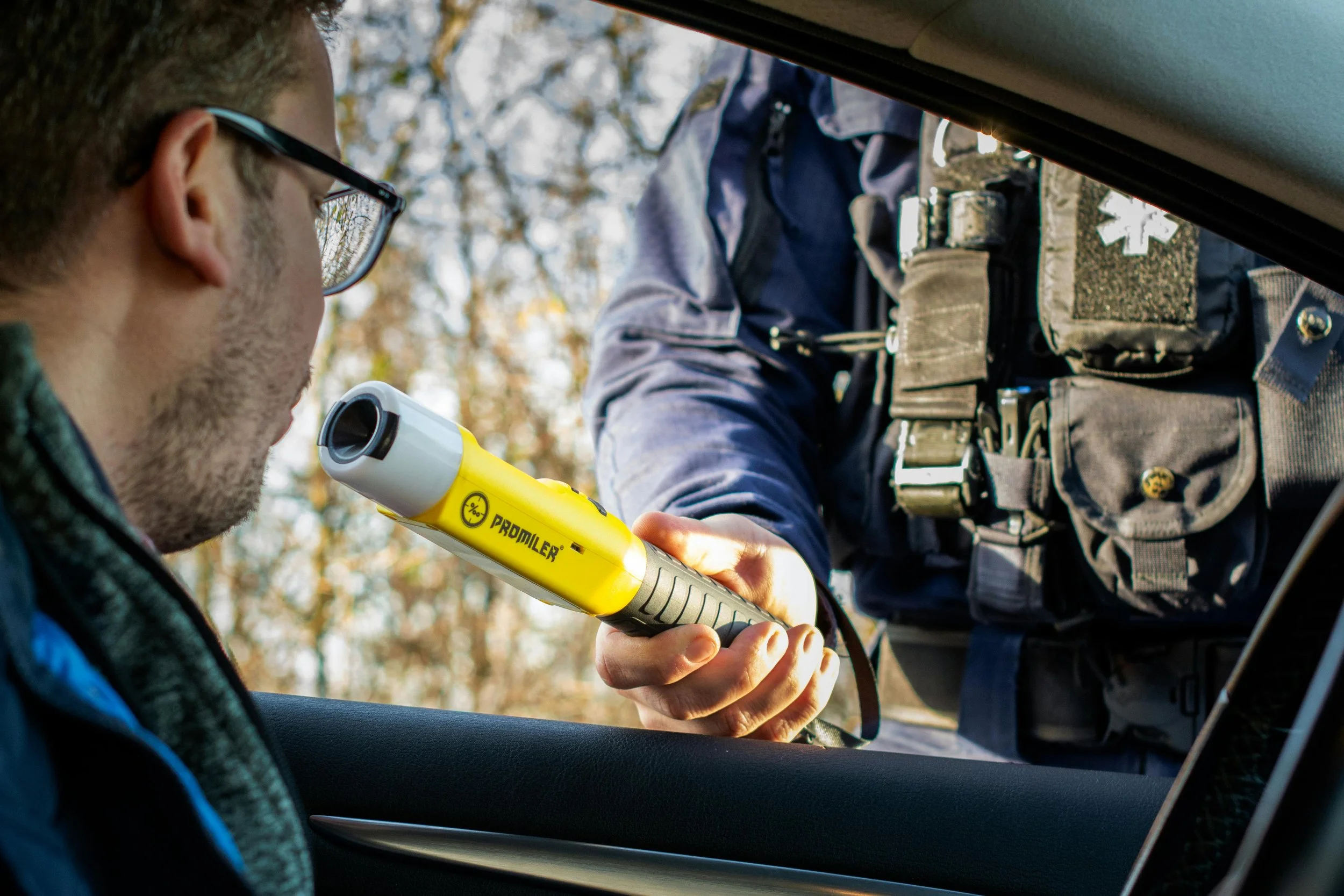Retail Theft & Shoplifting Defense Across Lake and McHenry Counties
Charged with retail theft or shoplifting in Illinois? AKL Legal, LLC provides experienced defense for misdemeanor and felony retail theft charges across Lake and McHenry Counties. Learn how Illinois retail theft laws work and how a skilled defense attorney can help protect your record.
Got a CDL and Facing a DUI in Illinois? What Commercial Drivers Must Know
A DUI can cost Illinois CDL drivers their license and career — even in a personal vehicle. Learn how DUI laws, summary suspension, and court supervision affect your CDL, and how an experienced Illinois DUI attorney can help protect your livelihood.
Juvenile Charges in Illinois: What Parents Need to Know About Juvenile vs. Adult Court
Is your child facing juvenile charges in Illinois? Learn the difference between juvenile and adult court, diversion programs, record expungement, and when minors may be tried as adults. Contact an experienced Grayslake juvenile defense attorney for guidance.
Can You Fight a DUI in Illinois Without a Lawyer? |AKL Legal, LLC
Facing a DUI in Lake County, McHenry County, or Cook County, Illinois? You can represent yourself, but it’s risky. Learn why hiring an experienced Illinois DUI attorney can protect your license, record, and future. AKL Legal, LLC DUI defense attorneys offer a free consultation.
Top DUI Defenses in Illinois: How to Fight Your DUI Charge | AKL Legal, LLC
Charged with DUI in Illinois? You have options. Learn about the best legal defenses to DUI charges, including lack of probable cause, faulty breath tests, and improper field sobriety testing. AKL Legal, LLC defends clients across Lake, McHenry, and Cook Counties. Protect your license and your future—call for a free consultation today.
Illinois Search Warrants: Your Rights, What to Do, and How to Protect Yourself | AKL Legal, LLC
Facing police at your door with a search warrant can be overwhelming. Learn your rights, what officers can and cannot do, and how to protect yourself under Illinois search and seizure laws. AKL Legal, LLC explains how to respond, document the search, and challenge unlawful police actions.
Illinois Motion to Suppress Evidence: How AKL Legal, LLC Can Challenge Illegally Obtained Evidence
Learn how a motion to suppress evidence can protect your rights when Illinois police obtain evidence illegally. AKL Legal, LLC explains grounds for suppression, how the process works, and how an experienced criminal defense lawyer can strengthen your case. Contact us for a free consultation.
Miranda Rights in Illinois: What They Really Mean and How to Protect Yourself | AKL Legal, LLC
Learn what Miranda rights truly mean, when police must read them, and how invoking your right to remain silent or request an attorney protects you. AKL Legal, LLC explains detention vs. arrest, your constitutional protections, and how an Illinois criminal defense lawyer can safeguard your rights.
Charged with an Illinois Order of Protection Violation?
Accused of violating an Illinois Order of Protection? Learn about the criminal penalties (misdemeanor to felony), the three types of protective orders (Emergency, Interim, Plenary), and why you need an experienced Lake County Illinois criminal defense attorney to defend your rights. Don't face the serious consequences—get legal help now.
Is It Illegal to Sleep in Your Car While Drunk in Illinois? | AKL Legal, LLC
Think it’s safe to sleep in your car after drinking? In Illinois, you can still be charged with DUI even if you’re not driving. Learn what “actual physical control” means under Illinois law, possible defenses, and how AKL Legal, LLC helps clients in Lake and McHenry Counties fight DUI charges and protect their licenses.
Underage Drinking Charges in Illinois: Your Guide to Zero Tolerance & Juvenile Defense | AKL Legal, LLC
Facing underage drinking charges in Illinois? Learn how Zero Tolerance laws, DUI penalties, and juvenile alcohol offenses can impact your child’s future. AKL Legal, LLC provides experienced underage drinking defense in Lake County, McHenry County, and surrounding areas. Protect your child’s record—call for a free consultation.
Illinois Second DUI Offense: Jail Time, License Suspension, and Defense Strategies | AKL Legal, LLC
Facing a second DUI in Illinois? The penalties are severe—no court supervision, longer license suspension, and potential jail time. At AKL Legal, LLC in Grayslake, our experienced DUI defense attorneys protect your rights and driving privileges across Lake, McHenry, and Cook Counties. Don’t face a second DUI charge alone—get legal help today.
Falsely Accused of a Sex Crime in Illinois? What to Do Next
If you’ve been falsely accused of a sex crime in Illinois, your future, freedom, and reputation are at risk. Learn how to protect yourself by staying silent, hiring an experienced Illinois criminal defense attorney, and acting fast. AKL Legal, LLC provides skilled sex crimes defense in Lake County, McHenry County, and Cook County.
Do I need to go to court for a Lake County Traffic Ticket? | AKL Legal, LLC
Got a traffic ticket in Lake, McHenry, or suburban Cook County? Get expert legal help. Learn when you're required to appear in court and how an experienced criminal defense attorney from AKL Legal, LLC can help you fight your charges, reduce penalties, and protect your driving record. Contact us for a free consultation. 847-262-9888
Suspended CDL in Illinois? | Lake & McHenry County CDL Defense Lawyer | AKL Legal LLC
Is your CDL suspended in Illinois? AKL Legal, LLC defends commercial drivers in Lake County, McHenry County, and suburban Cook County against CDL suspensions, DUIs, and serious traffic violations. Our experienced Grayslake CDL defense attorneys fight to protect your license, job, and future. Call today for a free consultation.
Falsely Accused of Child Abuse in Illinois?
Being falsely accused of child abuse in Illinois can feel overwhelming, threatening your reputation and parental rights. This guide explains the crucial steps to take, from hiring an attorney to navigating a DCFS investigation and protecting your parenting time. Learn how an experienced lawyer can help you clear your name and regain control of your life.
Understanding Assault and Battery Charges in Illinois
Facing assault or battery charges in Illinois is serious. Assault involves threats of harm, while battery means intentional physical contact or injury. Both can lead to jail, fines, and a permanent record. At AKL Legal, LLC in Grayslake, we defend clients in Lake County, McHenry County, and suburban Cook County against violent crime charges.
Driving Without a Valid License in Illinois
Driving without a license isn’t just risky—it’s flat-out illegal in all 50 states. And if you think you can get away with it, think again. Depending on your state and whether you’ve done this before, the penalties for driving without a license can range from a minor fine to jail time and even long-term license suspension. Lake & McHenry County criminal defense attorney Alan Lenczycki is highly experienced with the severity of driving without a license in Illinois, and he has worked with many to navigate the legal process.
Can You Expunge a Misdemeanor in Illinois?
Having a misdemeanor on your record can feel like a weight you can’t shake. Whether it was a one-time mistake or something that didn’t even result in a conviction, the good news is — you might be able to expunge it and move forward with confidence. Lake County criminal defense attorney, Alan Lenczycki, explains more.
Underage DUI Laws in Illinois
If you’re under 21 and caught driving with any trace of alcohol in your system in Illinois, you’re in serious legal territory. Illinois follows a Zero Tolerance policy for underage drinking and driving. That means any amount of alcohol in your system can land you with a DUI charge and license suspension.




















